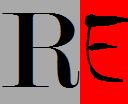
[…]
And my heart owns a doubt
Whether ’tis in us to arise with day
And save ourselves unaided.
Robert Frost, Storm fear (1913)
Early in the morning, Squad N010 arrived on the beach. The weather was very windy and cloudy, the sky looked pale and a pungent, pervading smell of rotten algae made even more unpleasant the fact of being in that place at that hour. Gatekeepers – as squad members were usually called – were not cowards. On the contrary, they were determined to accomplish their duty till the very end. Nevertheless, over the previous weeks many of them had continuously seesawed between eagerness and terror – both emotions being so powerful to almost paralyze their minds.
The Squad Captain, Erskyin Kolbahrt, ordered a quick inspection of the shore to make sure that all landmarks stones were in place. It was essential that every member of the team knew exactly where to position himself at the agreed hour. Kolbahrt, by the way, did not feel very well – his mind being still affected by the long-term symptoms of the Beta Syndrome he had contracted a few months earlier. Continue reading “The Blind Spot – A Short Story”


